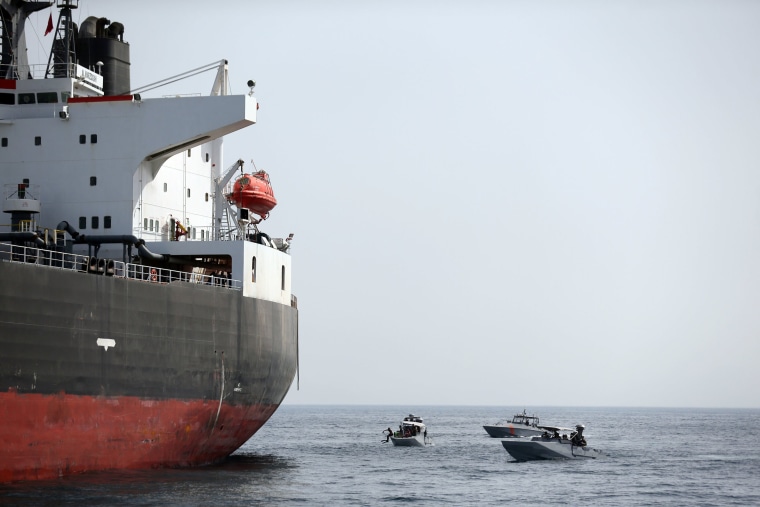The sabotage of four oil tankers in the Middle East was so sophisticated that it was likely the work of a government rather than a terrorist or militant group, an investigation concluded Thursday.
The four ships flagged to the United Arab Emirates, Saudi Arabia and Norway were damaged within the space of an hour on May 12 while anchored in the Gulf of Oman.
Those three countries gave a statement on their investigation to the United Nations Security Council on Thursday. They said the sabotage was likely carried out by several teams of operatives who deployed experienced divers armed with limpet mines, which are are magnetic explosives usually attached to a ship's hull.
Their joint document did not name any country suspected of being behind the attack, but the Saudi ambassador to the U.N. blamed Iran.
"We believe that the responsibility for this action lies on the shoulders of Iran," Abdallah Y. Al-Mouallimi said, according to Reuters. "We have no hesitation in making this statement."
This echoes previous allegations by national security adviser John Bolton, who said he believes it was the work of "naval mines almost certainly from Iran."
Iran, which lies some 60 miles from the UAE across the Gulf of Oman, has denied the allegations and has called for an independent investigation.
The backdrop to the sabotage attack last month is an atmosphere of rising tension between the U.S. and Iran. The administration of President Donald Trump has been taking a far more hawkish stance since coming into office, and U.S. officials have been warning about what they claim is the risk Iran could launch an attack.
Over the last month, the Trump administration announced that it was sending an aircraft carrier strike group and Air Force bombers to the Middle East, as well as Patriot missiles and additional troops.
Some analysts questioned why Iran would carry out such an attack, which threatened to draw the ire of the U.S. and its allies and risk a all-out conflict it would lose. Others have pointed out that the U.S. as "a long history of provoking, instigating, or launching wars based on dubious, flimsy, or manufactured threats," as the New Yorker put it last month.
The joint statement by the UAE, the Saudis and Norway describes a "sophisticated and coordinated operation carried out by an actor with significant operational capacity, most likely a state actor."
The attack was likely carried out by several teams of operatives navigating fast boats, slipping into UAE territorial waters and navigating through the busy anchorage off the port of Fujairah, the statement added.

Out of almost 200 vessels, these four tankers were deliberately selected and located using sophisticated intelligence capabilities, it said.
Once there, trained divers are believed to have been deployed, placing limpet mines at the water line of the ship's hulls so they were crippled but not sunk.
The operatives in the boats then likely removed their divers and detonated the bombs all within one hour of each other — before anyone knew what was happening.
"The attacks endangered international commercial navigation and the security of global energy supplies, and threatened international peace and security," the report said.



